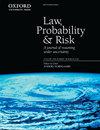州卡特尔
IF 1.4
4区 社会学
Q1 LAW
引用次数: 0
摘要
随着水力压裂技术的迅速崛起,美国成为全球石油生产中心和世界经济的引擎,美国正在摆脱历史上最大的大宗商品繁荣。但欲速则不达。美国的这些新油井也在释放天然气,天然气作为一种清洁可靠的燃料在世界范围内受到珍视,但必须直接烧掉或“燃烧”。如果没有管道将其输送给需要它的客户。石油繁荣的步伐,以及建设新天然气管道的挑战,迫使石油公司燃烧数量惊人的天然气。最近几个月,德克萨斯州和北达科他州都燃烧了——也就是浪费了——比许多州甚至国家消耗的还要多的天然气。本文表明,为了制止这种巨大的经济和环境浪费,各州必须制定新的反垄断法。它为国家能源卡特尔提供了理由。监管的少数共识之一是打击市场力量——防止占主导地位的供应商通过以更高的价格卖出更少的产品来增加利润。各州解散了生产商卡特尔,这样竞争就为消费者提供了更低的价格。但是,当国家的利益与生产者而非消费者一致时会发生什么呢?主要能源出口国的经济健康取决于其出口产品的价格。也就是说,这些州、省和国家可以通过提高出口石油和天然气的价格而受益。在20世纪上半叶,美国是世界上最大的石油出口国;在此期间,美国各州实际上作为一个卡特尔进行合作,以确保更高的油价。当其他国家取代美国成为世界上最大的石油生产国时,它们成立了石油输出国组织(Organization of Petroleum Exporting countries),以发挥类似的作用。本文建立了一种新的市场规制理论——国家卡特尔。它解释了这些卡特尔如何提供解决燃除危机的最佳方案,并为应对气候变化的富有成效的全球合作提供了独特的机会。它展示了各州如何通过调整和完善美国在前半个世纪的石油生产中偶然发现的工具来减缓生产、保护环境和增加其行业利润。它展示了如何调整这些工具来保护消费者、工业和环境。本文章由计算机程序翻译,如有差异,请以英文原文为准。
State Cartels
The United States is emerging from history’s biggest commodity boom as the meteoric rise of fracking has made America the center of global oil production and the engine of the world’s economy. But haste makes waste. These new American oil wells are releasing natural gas as well, which is prized as a clean and reliable fuel around the world, but must be simply burned off or “flared�? if there are no pipelines to bring it to the customers that need it. The pace of the oil boom, and the challenges of building new gas pipelines have forced oil companies to flare staggering quantities of natural gas. In recent months, Texas and North Dakota have both flared — that is, wasted — more natural gas than many states or even nations consume. This Article shows that to stop this tremendous economic and environmental waste, states must develop a new approach to antitrust law. It makes the case for state energy cartels. One of the few consensus grounds for regulation is combating market power — preventing dominant suppliers from increasing their profits by selling less at higher prices. States break up producer cartels so that competition provides consumers with lower prices. But what happens when a state’s interest coincides with producers rather than consumers? The economic health of major energy exporters depends on the price of the products they export. That is, these states, provinces, and countries can benefit by increasing the price of the oil and gas that they export. For the first half of the twentieth century, the United States was the world’s premier oil exporter; during that time, U.S. states cooperated as a de facto cartel to ensure higher oil prices. When other countries overtook the U.S. as the world’s premier oil producers, they formed the Organization of Petroleum Exporting Countries to play a similar role. This article establishes a new theory of market regulation — state cartels. It explains how these cartels offer the best solution to the flaring crisis and a unique opportunity for productive global cooperation to address climate change. It shows how states can slow production, protect the environment, and increase their industry’s profits by adapting and perfecting tools that the United States stumbled upon in the first half-century of oil production. And it shows how these tools can be tailored to protect consumers, industry, and the environment.
求助全文
通过发布文献求助,成功后即可免费获取论文全文。
去求助
来源期刊

Law Probability & Risk
MATHEMATICSSTATISTICS & PROBABILITY&-STATISTICS & PROBABILITY
CiteScore
2.10
自引率
28.60%
发文量
8
期刊介绍:
Law, Probability & Risk is a fully refereed journal which publishes papers dealing with topics on the interface of law and probabilistic reasoning. These are interpreted broadly to include aspects relevant to the interpretation of scientific evidence, the assessment of uncertainty and the assessment of risk. The readership includes academic lawyers, mathematicians, statisticians and social scientists with interests in quantitative reasoning.
The primary objective of the journal is to cover issues in law, which have a scientific element, with an emphasis on statistical and probabilistic issues and the assessment of risk.
Examples of topics which may be covered include communications law, computers and the law, environmental law, law and medicine, regulatory law for science and technology, identification problems (such as DNA but including other materials), sampling issues (drugs, computer pornography, fraud), offender profiling, credit scoring, risk assessment, the role of statistics and probability in drafting legislation, the assessment of competing theories of evidence (possibly with a view to forming an optimal combination of them). In addition, a whole new area is emerging in the application of computers to medicine and other safety-critical areas. New legislation is required to define the responsibility of computer experts who develop software for tackling these safety-critical problems.
 求助内容:
求助内容: 应助结果提醒方式:
应助结果提醒方式:


